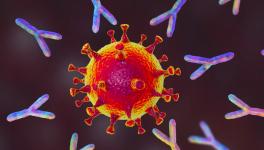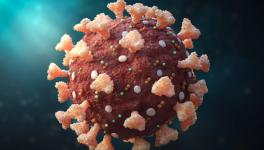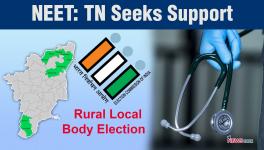COVID-19: Study Suggests Auto-antibodies May Induce Dangerous Blood Clotting
A hypersensitive immune response to COVID-19 disease has come to be known of having complicacies. It’s like the ‘own immune system kills rather than the virus’. This phenomenon called cytokine storm has now been well established to have created more complicacies as an outcome of a panicked immune system response in fighting the novel coronavirus. Another aspect of such immune system panic is the formation of blood clots, which in many cases have proven to be dangerous.
It is also known that an overactive immune response may initiate the formation of the dangerous clots in some severely ill patients. Researchers have now been able to find out some of the aspects of how these clots are formed.
One of the ways the clots are formed is through the auto-antibodies. Antibodies are needed to clear off the virus and the infection, but the auto-antibodies, instead of recognising a pathogen, attack molecules that form cell membranes. This attack can prompt neutrophils, a type of immune cell, to release a web of materials aimed against the virus. When these webs trap red blood cells and platelets, a clump may occur and that can eventually clog blood vessels. This mechanism of auto-antibody induced blood-clotting was reported in a research published in the Science.
Commenting on the mechanism, Jason Knight, an author of the paper and a rheumatologist at the University of Michigan said, “Presumably in the tissues, this is a way to control infections. But if you do it in the bloodstream, it’s very triggering of thrombosis, or clotting”.
This is an intriguing finding as there has been speculation about the role of the auto-antibodies, but their pathogenic impact was not known.
One pre-print study done in the preliminary level on the auto-antibodies also suggests that these antibodies can bind to a variety of host targets that may be a reason of disease severity in some cases. Also, studies done in different capacities suggest that auto-antibodies may interfere with the immune response against viruses.
In a kind of autoimmune disease known as the anti-phospholipid syndrome or APS, the auto-antibodies recognise phospholipids, the cell membrane molecules. In patients that suffer from APS, the auto-antibodies can trigger the activation of clot forming cells, putting the patients at high risk of forming blood clots.
In the study conducted by Knight and his team, 172 hospitalised patients were included and out of them more than half contained auto-antibodies that could recognise host phospholipids. The presence of these antibodies was also found to be linked to high levels of neutrophils in blood, which suggests that neutrophils have also joined in. the researchers mixed auto-antibodies collected from few patients in their sample with lab-grown neutrophils. The result was close to what the researchers doubted—neutrophils mixed with the auto-antibodies could release the web. Moreover, when auto-antibodies from patients were injected to rodents, the rodents developed blood clots. This was a hint that blood clotting in humans also could have been triggered by the auto-antibodies.
However, this might be only the tip of the iceberg; more researches are needed to confirm that auto-antibodies are linked to blood clotting.
Get the latest reports & analysis with people's perspective on Protests, movements & deep analytical videos, discussions of the current affairs in your Telegram app. Subscribe to NewsClick's Telegram channel & get Real-Time updates on stories, as they get published on our website.
























